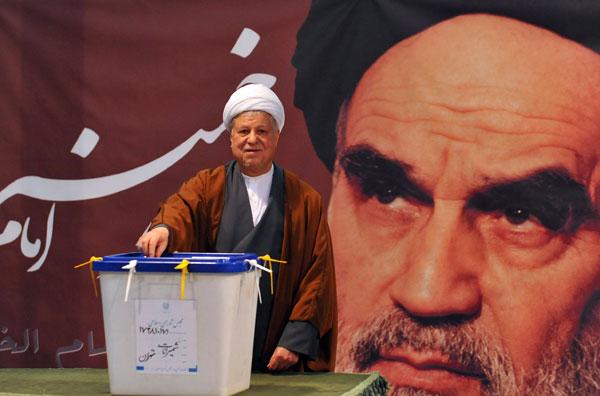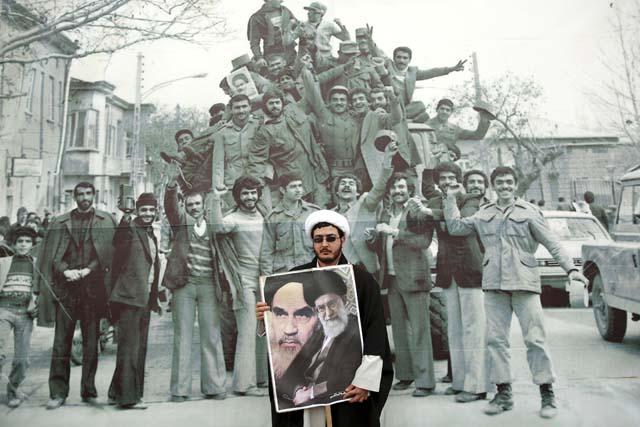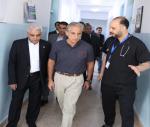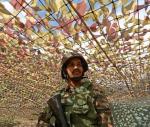You are here
Iran’s parliament votes against censuring Zarif over Holocaust stance
By Reuters - May 06,2014 - Last updated at May 06,2014
DUBAI — Iran’s Foreign Minister Mohammad Javad Zarif survived a censure vote in parliament on Tuesday for his refusal to deny the Holocaust, in the latest battle with hardliners trying to undermine President Hassan Rouhani’s overtures to the West.
Zarif, who is Iran’s chief nuclear negotiator, caused uproar among hardline conservatives in Iran when he called the Holocaust a “horrifying tragedy” in an interview with a German television station earlier this year.
He has received several warnings and had previously been called to parliament to account for his perceived soft line on traditional enemies Israel and the United States.
In Tuesday’s hearing, broadcast live on state radio, 75 Islamic hardliners in the 290-member assembly questioned him on a range of issues, including his stance on “illegitimate” Israel and the “lie of the Holocaust”.
In a victory for moderates trying to shed the “anti-Semitic” image cultivated by former president Mahmoud Ahmadinejad, the house voted against censuring Zarif.
The foreign minister turned the questions into an attack on Israeli Prime Minister Benjamin Netanyahu.
To bursts of applause, he said: “Netanyahu shamelessly claims Iran denies the Holocaust, that we are after a nuclear bomb to create another Holocaust. As long as I am foreign minister, I will not allow the Holocaust to be exploited to ruin our national image and dignity.”
Holocaust denial has been a theme of public speeches by leaders in Iran since the 1979 Islamic revolution. Ahmadinejad called the mass killing of Jews by the Nazis during World War II “a myth”.
Ahmadinejad’s stance damaged Iran’s global image and helped energise international efforts to curb its nuclear programme, suspected by the West of being aimed at seeking nuclear weapons capability. Tehran says its nuclear activities are for power generation and medical research.
The reformist government of Ahmadinejad’s successor, Rouhani, has tried to reverse the path of antagonism to the West, openly engaging in dialogue with the United States over the nuclear dispute.
Rouhani himself called the Holocaust “reprehensible” in a US television interview last year.
But hardliners, consisting mainly of followers of Ahmadinejad and his spiritual mentor Ayatollah Mohammad Taqi Mesbah Yazdi, have been fighting hard to block progress in both the nuclear talks and normalising ties with Washington.
On Saturday, opponents of the nuclear talks staged a gathering at the site of the former US embassy in Tehran, overrun by militants and occupied since 1979.
On Sunday, Rouhani told a group of academics, according to the official IRNA news agency: “There are people whose every cell is made of doubt. They panic at every step taken to talk. They want to bare swords to the world all the time.
“We don’t want to fight. We want to talk, reason and communicate. We may fail, we may succeed, but we won’t give up, we will keep going until we find a way.”
Related Articles
TEHRAN, Iran — Former Iranian president Akbar Hashemi Rafsanjani, a wily political survivor and multimillionaire mogul who remained among th
Iranian Foreign Minister Mohammad Javad Zarif is to appear before parliament following controversy over a promenade with his American counterpart during intense nuclear negotiations in Geneva, state media reported on Sunday.
President Hassan Rouhani called for “fair and constructive” nuclear talks Tuesday as Iranians marked the 35th anniversary of the Islamic revolution amid recent progress in negotiations with world powers.


















